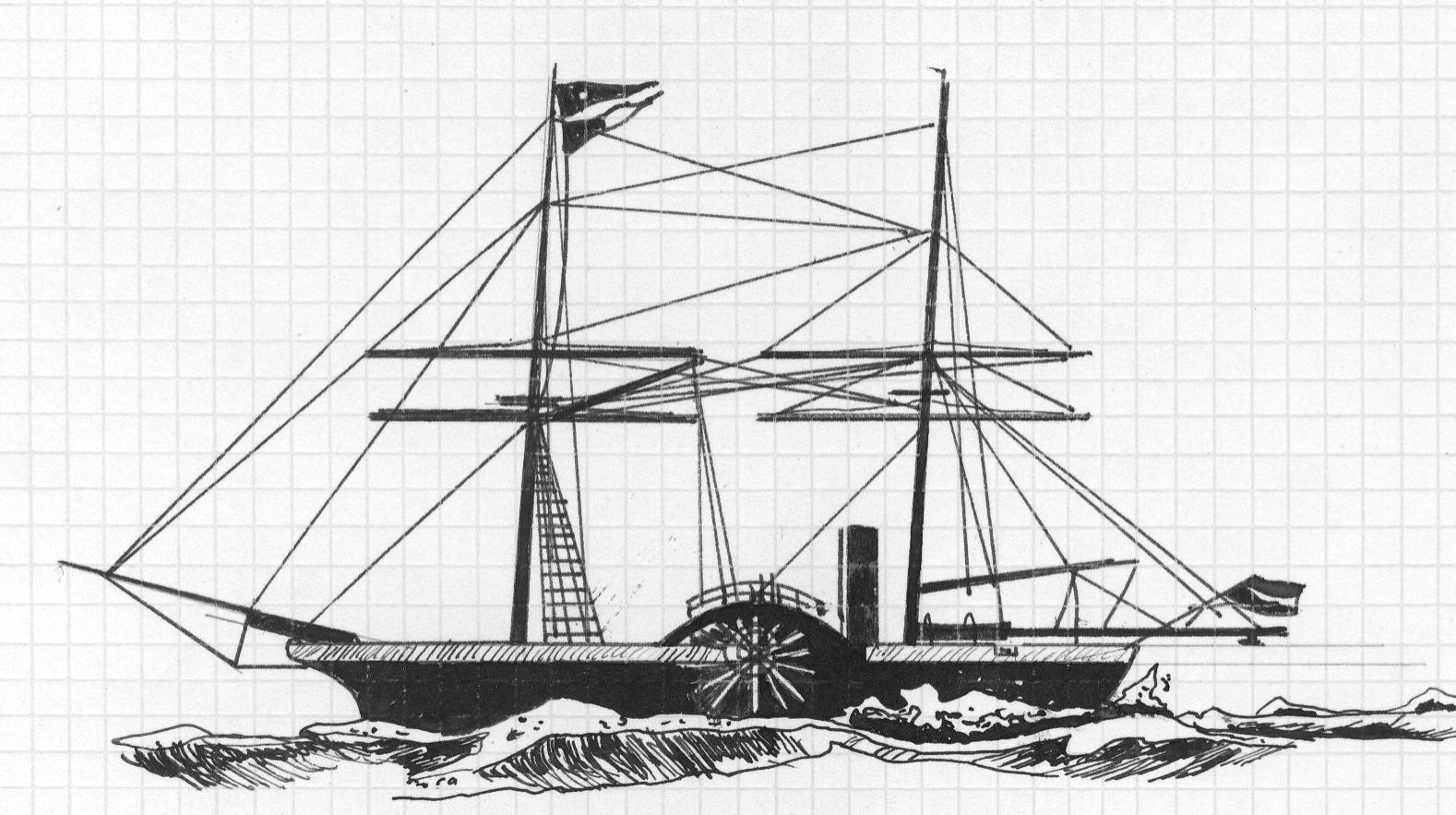In the Dokhaven of the navy yard of Vlissingen. Netherlands around 1865
Zr. Ms. Cycloop
An item reported that on Wednesday afternoon around 17.00 o’clock the Dutch steam battery Zr. Ms. De Ruyter (1) left with the usual gun salute accompanied by the steamship Zr. Ms. Cycloop (2) and arrived on Friday at 10.00 o’clock at Nieuwediep, Netherlands.
An second item reported that the Dutch steam battery Zr. Ms. De Ruyter executed on Monday and Tuesday several satisfying tests in the roads of Vlissingen, Netherlands. She steered and behaved very easily and achieving a speed of 10-10,5 miles.
Notes
1. Call sign GQSV. On stocks at the naval yard at Flushing, Netherlands 20 August 1831 as 74 guns ship of the line 2nd class. Dimensions 54,16 x 14,30/14,70 x 6,46-7,32m, displacement 3000-3655 ton (maximum), sail area 237 M2. Crew numbered 650 men. As 54-gun frigate 1st class on stocks at the naval yard at Flushing 22 February 1850, launched 8 August 1853, commissioned 21 August 1854. Dimensions 54,16 x 14,30/14,70 x 6,10-6,80m, displacement 2770 ton, sail area 2170 square metres. Crew numbered 500 men. Rebuilt at naval yard at Hellevoetsluis and NSBM Fijenoord as a steam frigate. In dry dock at the naval yard at Hellevoetsluis 20-21 October 1859 and in the aft dock 25 October-1860-19 September 1861. In 1860 fitted out there with steam power and fitted out with 45 guns. Launched 19 September 1861, commissioned 17 April 1862 but further conversion stopped. Dimensions 60,30/63,50 x 14,30/14,70 x 6,10-6,80m, displacement 2828 ton, sail area 2.450 square metres. Crew numbered 500 men. Rebuilt as an floating battery at the naval yard at Vlissingen. On stocks mid 1862, completed mid 1865, commissioned 21 July 1870, de commissioned on 9 October 1870 and finally sold at Willemsoord to be broken up 1874. Dimensions 60,30/63,00 x 14,30/14,93 x 6,40-6,80m, displacement 2944-3050 ton (maximum). Crew numbered 250 men. Armed with 14-60pdrs and served at the mouth of the Schelde. Her figurehead was made of fir-wood representing a bust of the Dutch sea hero M.A. de Ruyter. When she was rebuilt as a steam battery, a same project was going on in Denmark namely with the Dannebrog. The Danes visited the Netherlands to see De Ruyter.
2. paddle steamship 2nd/3rd class, call sign GQHB, on stocks at navy yard at Vlissingen, Netherlands by A.E. Tromp on 23 July 1840, commissioned on 1 June 1843, launched on 13 June, refitted to be used as transport for royalties in 1845, docked at the navy yard at Hellevoetsluis, Netherlands 11-14 September 1850, 13-February-2 September and 15 November-1 December 1856 and 29 July-1 August 1861, transferred to the Indische Militaire Marine in 1867, condemned and stricken 1873, dimensions 47,00 (on load lone between perpendiculars) x 8,95 (inner hull) x 3,5 (medium) x 5,36 (hold amidships to main deck) metres, 875 tons displacement, 2 masts,1 funnel, 6 guns (consisting of 1-20cm grenade gun, 1 rifled 16cm gun, 4-30 pd carronades, according to Obreen in wartime 2-20“grenade guns, 4 medium 30pd guns, in peace time 2 long 30pd guns, 2-medium 30pd guns and 10-1pd swivels)), 220 hp horsepower and a crew numbering 90-100 men.


